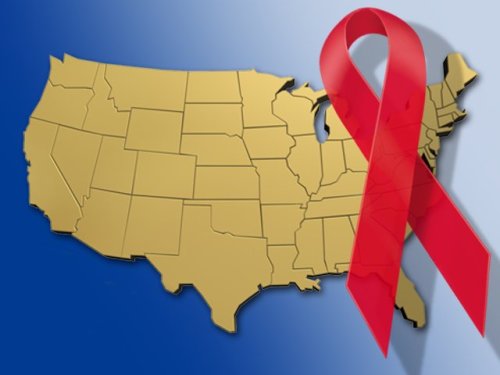
The immediate task might be coaxing a toddler into one more swallow of nasty-tasting medication. Longer term, there are tough choices to be made about telling that child, and the surrounding community, why those daily doses may be needed for the rest of his or her life.
While most adoptions present challenges, there is a distinctive set of them facing parents who decide to adopt children living with HIV. A twice-daily medication regimen, lingering prejudice and fear, uncertainty about the child's longevity and marriage prospects.
Yet the number of U.S. parents undertaking HIV adoptions, or seriously considering them, is surging, from a trickle five years ago to at least several hundred. Most involve orphans from foreign countries where they faced stigma, neglect and the risk of early death.
``I can't think of a more significant way to make an impact than to do this,'' said Margaret Fleming, a 74-year-old Chicagoan whose nine adopted children include three HIV-positive first graders.
``These kids were, in many ways, the modern-day lepers,'' she said.
Ignorance and bias related to HIV have not vanished in the United States. But the stigma is steadily lessening, especially compared with many of the other countries that are home to an estimated 2.5 million children with the disease.
At forums and over the Internet, parents who have adopted HIV-positive kids are offering advice and encouragement to those who might follow suit. In February, Bethany Christian Services, the largest U.S. adoption agency, published a detailed educational package about HIV adoptions to help the growing number of interested parents make informed decisions.
``We didn't feel we could ethically place these kids without some really solid education for these families,'' said Sara Ruiter, Bethany's international services coordinator. ``There are some very unique, chronic challenges that we want to be on the parents'
mind.''
One of the most difficult challenges, for many families, is deciding whom they will tell about the adoptive child's HIV status.
Health care providers must be informed, otherwise under federal and state confidentiality laws, it is entirely optional whether parents notify school officials, neighbors, or anyone else.
As a result, families' approaches vary widely _ some are totally open while others, fearful of stigma, guard the information so tightly that even the child may be kept in the dark for many years.
``Once your child's status is disclosed, you cannot `take it back,' so careful consideration and thought should be given to this important issue,'' Bethany advises.
For Tim and Annette Franklin, of Bridport, Vermont, the decision to be open about their adopted daughter Gedeleine's HIV status was intended to make clear it is nothing to be ashamed of.
``We were concerned that by being overly secretive, we would be contributing to the stigma,'' said Tim Franklin, a Congregational minister.
``Inevitably, in families where there are secrets, the secrets end up being destructive,'' he said. ``We felt it's going to come out, and we want to control the way it happens, rather than it coming out in a bad way.''
Margaret Fleming, the Chicago woman with three adopted, HIV-positive children, runs a support service called Chances by Choice that recruits and advises parents interested in HIV adoptions. While the group's official advice is that disclosure ``is totally at the discretion of the parents,'' Fleming personally opted for openness.
Her three first-graders ``already know they're HIV-positive,''
she said. ``I am completely open with them, our neighbors, their schools.''
At the local elementary school, teachers and staff responded supportively, Fleming said, with the principal easing the concerns of one parent who called to complain.
At a summer camp, however, the director was angry when he learned after-the-fact that one of the HIV-positive children was attending, even though Fleming had mentioned that on the application form.
From a very early age, Fleming's three children with HIV learned they had a chronic health problem that required taking unpleasant-tasting medicine. Initially, she told them their blood ``is not strong.'' Now they, as well as their siblings, know the problem is HIV, and the older ones help administer the medicine when Fleming is not home.
``They are great ambassadors,'' Fleming said of her three HIV-positive children. ``They've dispelled a lot of myths.''
Chief among the myths, she said, are misconceptions about how HIV is transmitted and fears that HIV-positive children risk not reaching adulthood.
``My own children look terrific,'' Fleming said. ``They can live long, happy lives.''
<한글 요약>
HIV 감염된 아이들을 입양하는 미국 가정 증가
모든 입양에는 넘어야 할 도전들이 있지만, 에이즈를 유발하는 바이러스인 HIV를 가진 아이들을 입양하는 데는 더 많은 도전들이 도사리고 있다. 하루 두 번 약을 먹고, 에이즈에 대한 편견 및 두려움과 싸워야 하며 아이의 수명과 결혼에 대한 전망도 뚜렷하지 않다.
그러나 이러한 도전들에도 불구하고 HIV 보균 아이들을 입양하는 미국 가정이 증가하고 있다. 입양되는 아이들의 대부분은 해외에서 입양되고 있다.
미국에서는 에이즈에 대한 편견은 아직 존재하지만, 사회적인 오해는 감소하고 있는 상황이다.
인터넷과 오프라인 포럼상에서 HIV 보균자인 아이들을 입양하는 부모들은 이러한 아이들을 입양하고자 하는 부모들에게 조언과 용기를 보내고 있다.
마가렛 플레밍씨가 입양한 아이들 9명 중 3명이 HIV 보균자이다. 플레밍씨는 이 아이들은 현대판 나환자들이라며 이 아이들을 입양하는 것 이외의 영향력 있는 일을 생각할 수 없었다고 말하며 입양동기를 밝혔다.
에이즈 감염 아이들을 입양한 후 가장 어려운 문제는 입양된 아이의 건강상태를 누구에게 알릴지에 대해 결정하는 것이다.
한번 아이의 건강상태가 공개되어 버리면 그 이후에는 다시 돌이킬 수 없게 되어 신중하게 생각해야 한다고 입양기관인 베타니 크리스탄 서비스가 조언한다.
HIV 보균 아이를 입양한 프랭클린 부부는 아이의 상태에 대해 비밀로 하는 것은 에이즈에 대한 사회적 오해를 더 부추기는 것이라고 생각하여 에이즈에 대해 부끄러울 게 없다는 것을 확실히 하기 위해 아이의 상태를 공개했다고 말했다.








![[KH Explains] How should Korea adjust its trade defenses against Chinese EVs?](http://res.heraldm.com/phpwas/restmb_idxmake.php?idx=644&simg=/content/image/2024/04/15/20240415050562_0.jpg&u=20240415144419)










![[Today’s K-pop] Stray Kids to return soon: report](http://res.heraldm.com/phpwas/restmb_idxmake.php?idx=642&simg=/content/image/2024/04/16/20240416050713_0.jpg&u=)